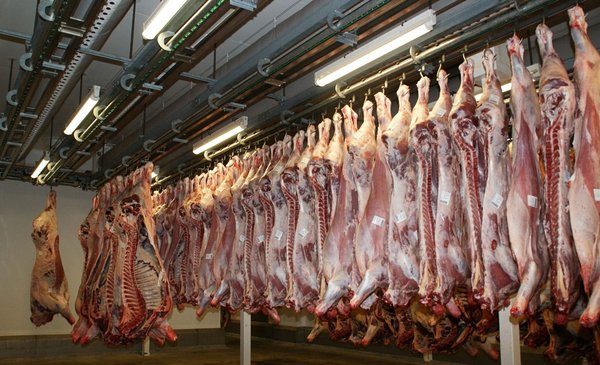Title: Controversy Ignites Over Minerva’s Acquisition of Three Meatpacking Plants
Introduction:
In a surprising turn of events, a recent acquisition by Minerva, a renowned meat processing company, has ignited a wave of criticism from both politicians and workers in the industry. The purchase of three major meatpacking plants has raised concerns about monopolization, job security, and the potential impact on the local economy. As the controversy unfolds, stakeholders from various sectors are expressing their opinions, further fueling the debate.
Unveiling the Acquisition:
In a move that caught many off guard, Minerva recently finalized the acquisition of three high-profile frigorificos, opening doors to endless possibilities for the global meat empire. While this move could potentially solidify Minerva’s position in the market, many individuals are questioning the consequences it may have for competition and the overall well-being of the industry.
The Political Backlash:
Leading politicians were quick to respond, criticizing Minerva’s acquisition as a threat to fair competition and asserting the need for stricter regulations within the industry. Concerns are mounting that such a consolidation of power could stifle competition, leading to higher prices and diminished options for consumers. The controversy has ignited a political firestorm, with calls for governmental intervention and increased oversight.
Worker’s Dismay:
Perhaps the loudest voices of dissent come from the workers directly affected by this acquisition. Many fear for their job security as Minerva’s reputation for streamlining operations and optimizing efficiency raises questions about the future of employment in these plants. Trade unions and workers’ associations have voiced their concerns, demanding assurances and commitments from Minerva to protect their livelihoods and the local workforce.
Economic Ramifications:
Beyond the immediate consequences for workers, there are broader concerns about the impact on the local economy. Critics argue that Minerva’s growing dominance could lead to a concentration of wealth in the hands of a few, exacerbating economic inequality. Additionally, the potential closure of smaller competitors may disrupt supply chains and negatively affect local businesses entwined with the frigorificos.
Prospects of Monopolization:
As Minerva continues to expand its market share with strategic acquisitions, the possibility of monopolization looms large. Experts warn that a lack of viable competition could hinder innovation, impede quality control, and compromise consumer choice. The future of the industry may shift dramatically if Minerva remains unchecked in its pursuit of a dominant position.
The Road Ahead:
With the controversy surrounding Minerva’s acquisition of three frigorificos reaching a boiling point, it is evident that further discussions, negotiations, and perhaps even legal action lay ahead. The outcome of this debate will undoubtedly shape the future of the meatpacking industry and establish precedents for corporate consolidation in Uruguay’s market. All eyes are now on Minerva, regulatory bodies, and the willingness of politicians to protect the interests of both workers and consumers.
” Sources www.elobservador.com.uy ”

